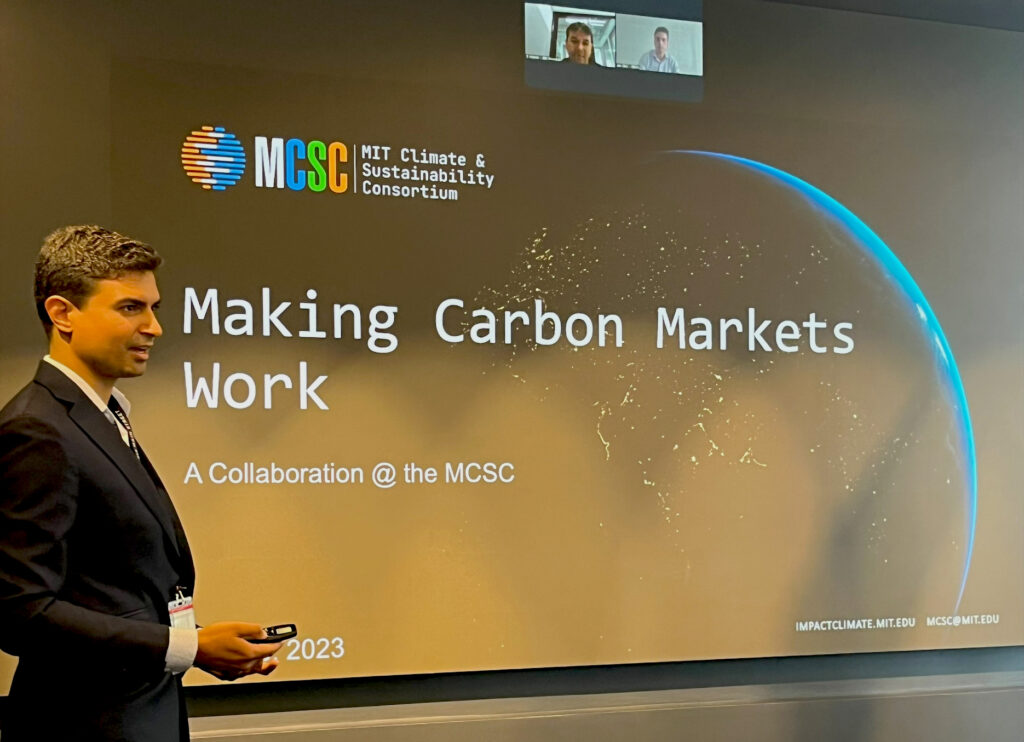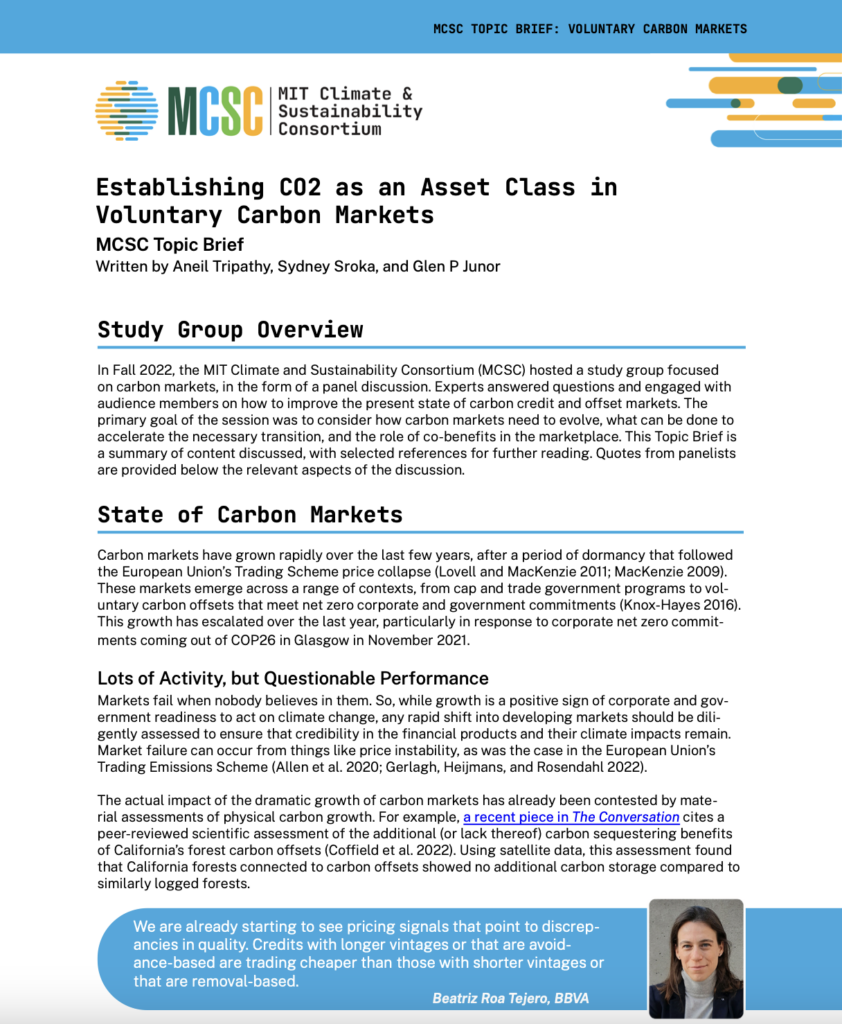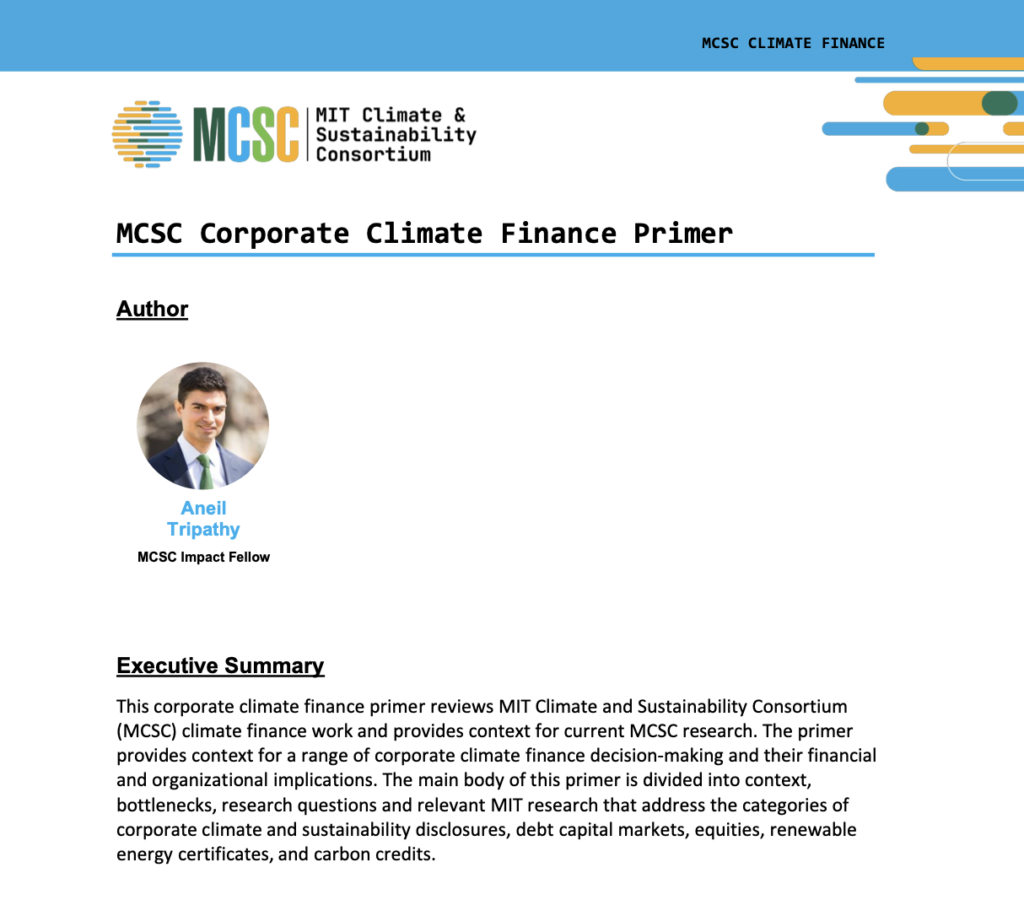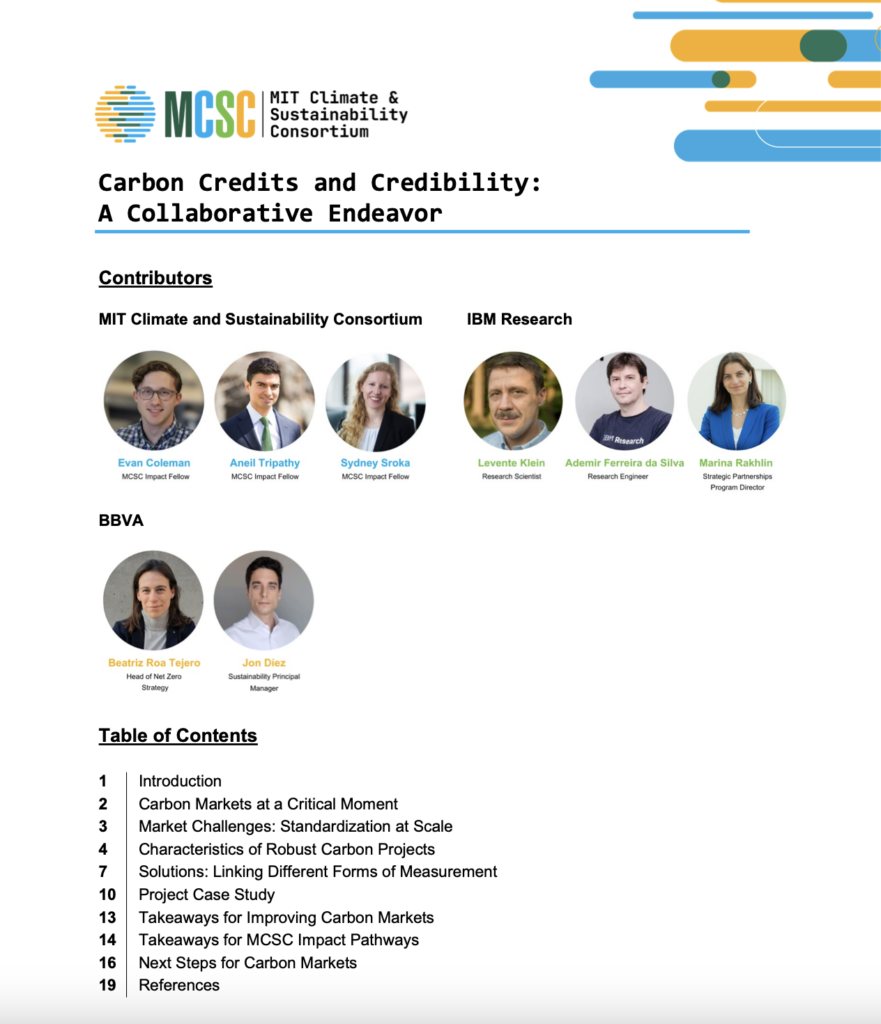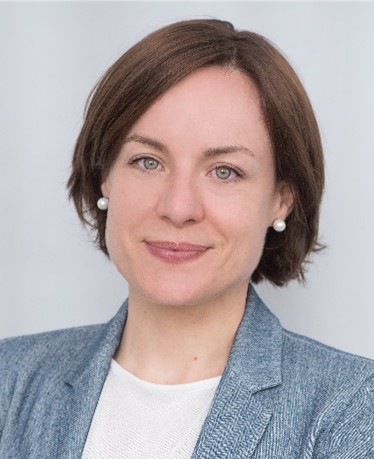Climate finance
Projects
Impact Fellow/Core
- Analysis of climate and sustainability disclosures from financial markets (Tripathy)
- Voluntary sustainability and climate reporting geared towards reporting agencies and Environmental, Social, Governance (ESG) Ratings has shaped corporate ESG reporting over the last twenty years. Globally, a series of mandatory reporting regulations are now transforming corporate sustainability reporting processes. This project contextualizes quantitative analysis on climate and sustainability reports at the MIT Sloan Aggregate Confusion Project through qualitative interviews across sustainability teams at MIT Climate and Sustainability Consortium (MCSC) corporate members. Our findings are shaped by the convenience sample of the range of company members at the MCSC that have already committed to some level of climate action.
- Real Estate Climate Finance (van der Kroft)
- Real Estate is essential in reaching net zero, accounting for 31% of US carbon emissions. A critical constraint in the real estate sector is sustainable financing, a movement of investors that cheaply provides capital to firms to initiate sustainable investments in their buildings. Such funding is essential as most technologies needed to become carbon neutral already exist (such as heat pumps, solar panels, and isolations) but are too expensive to implement. In the real estate sustainable finance research at MCSC, we strive to address these challenges and promote a more sustainable built environment. Specifically, we focus on how sustainable engagement, investors pushing firms to become more sustainable through shareholder voting, and the preferences of environmental and social issues of investors and firms play a pivotal role in achieving this.
- Aggregate Confusion Project (Sloan Sustainability Initiative)
- A program of research to improve the quality of ESG measurement and decision making in the financial sector as well as corporate climate and sustainability disclosures.
Seed
2024
- Improving additionality assessment in volunteer carbon markets (Rigobon)
- This project will generate a unique database of carbon offset projects to develop metrics to detect failures in current additionality assessment practices. The team will develop recommendations on how to improve these practices, in collaboration with industry experts and with a focus on natural sink projects. The findings of this project will be valuable for MCSC member companies that seek to include high-integrity carbon projects in their sustainability efforts.
- Gaining green premiums from decarbonizing the built environment: a holistic evaluation approach for low-carbon investments (Zheng, Rigobon)
- This project aims to develop a holistic framework of measuring green premiums using an economically grounded model calibrated on a geo-sector case study, with the capacity to be generalized to other settings. The team will develop an interactive toolkit to enable MCSC members to incorporate assessments of future regulatory developments, investor preferences for sustainability, and utility prices when evaluating green premiums. The white paper and toolkit simulation could provide critical input for long-term financial decisions and facilitate member companies’ decision-making in choosing the most cost-effective paths to achieving net-zero emissions.
Contact Us
Get in touch with the MCSC
If you would like more information, please e-mail mcsc@mit.edu.
Who's studying this
Research Scientist
Postdoctoral Associate
Postdoctoral Associate
MCSC Impact Fellow

